One-third of the North Carolina House districts that state legislators redrew this month because of previous excessive bias favoring Republicans are still flawed by partisanship and secrecy, victors in a recent redistricting lawsuit warned on Friday.
Lawyers for Common Cause, the state Democratic Party and Democratic voters filed their formal objections to 19 House districts in state court. They asked the three-judge panel that ruled in their favor three weeks ago in a partisan gerrymandering case to step in and take over the redrawing in five multi-county groupings containing the districts, likely through an outside referee the judges picked.
They lodged no complaints against the Senate map, which received strong bipartisan support in the chamber.
“This court gave the General Assembly an opportunity to draw remedial maps and cure their prior constitutional violations,” attorney Eddie Speas wrote for the plaintiffs. “Although its process was not without flaws, the Senate has done so. But the House has not.”
Republican lawmakers have until Oct. 4 to respond to the plaintiffs’ objections. Earlier this week, the GOP defendants wrote a memo explaining why the alterations approved by the General Assembly following several days of public debate and discussion should be left alone and used for the 2020 elections.
The three judges ruled Sept. 3 that nearly 80 of the 170 state legislative districts approved in 2017 were tainted by partisan gerrymandering designed to maximize GOP control of both chambers, violating the North Carolina Constitution. Several redistricting researchers said that overall the House and Senate maps were less skewed toward Republicans with the changes compared to those used in last year’s elections. The base for both sets of district changes actually originated from maps a redistricting expert hired by the plaintiffs in the lawsuit trial.
But the plaintiffs wrote Friday that Jowei Chen, the University of Michigan researcher and plaintiffs’ expert, has analyzed the enacted maps and that the replacement in four or the five county groupings is an “extreme, pro-Republican partisan outlier.”
The plaintiffs allege attorneys for the Republican defendants improperly emailed partisan data with House Redistricting Committee members about Chen’s base districts, and used consultants with experience in election data without the court’s permission. They say that runs counter to the judges’ order prohibiting legislators from using voter registration percentages and election results in the new districts and from “any intentional attempt to favor voters or candidates of one political party.”
Republicans have said the partisan data wasn’t used, and that they complied with all standards set by the judges. The plaintiffs also told the court that incumbent legislators had too much power over how districts were redrawn to favor them. The judges had said that only “reasonable efforts” could be taken to prevent incumbents from living in the same new district.
The groupings that the plaintiffs want redrawn a second time are districts in Guilford County; Columbus, Pender and Robeson counties; Forsyth and Yadkin counties; Cleveland and Gaston counties; and Brunswick and New Hanover counties.
Related Stories
‹

NC Congress Map Challenged Again on Partisan BiasBuoyed by a favorable ruling this month involving legislative districts, North Carolina voters sued again on Friday to overturn the state’s congressional map, alleging Republican state lawmakers manipulated lines to maximize GOP seats. The registered Democrats and independents filed a lawsuit in Wake County Superior Court, alleging extreme partisanship in how the 13 districts were […]
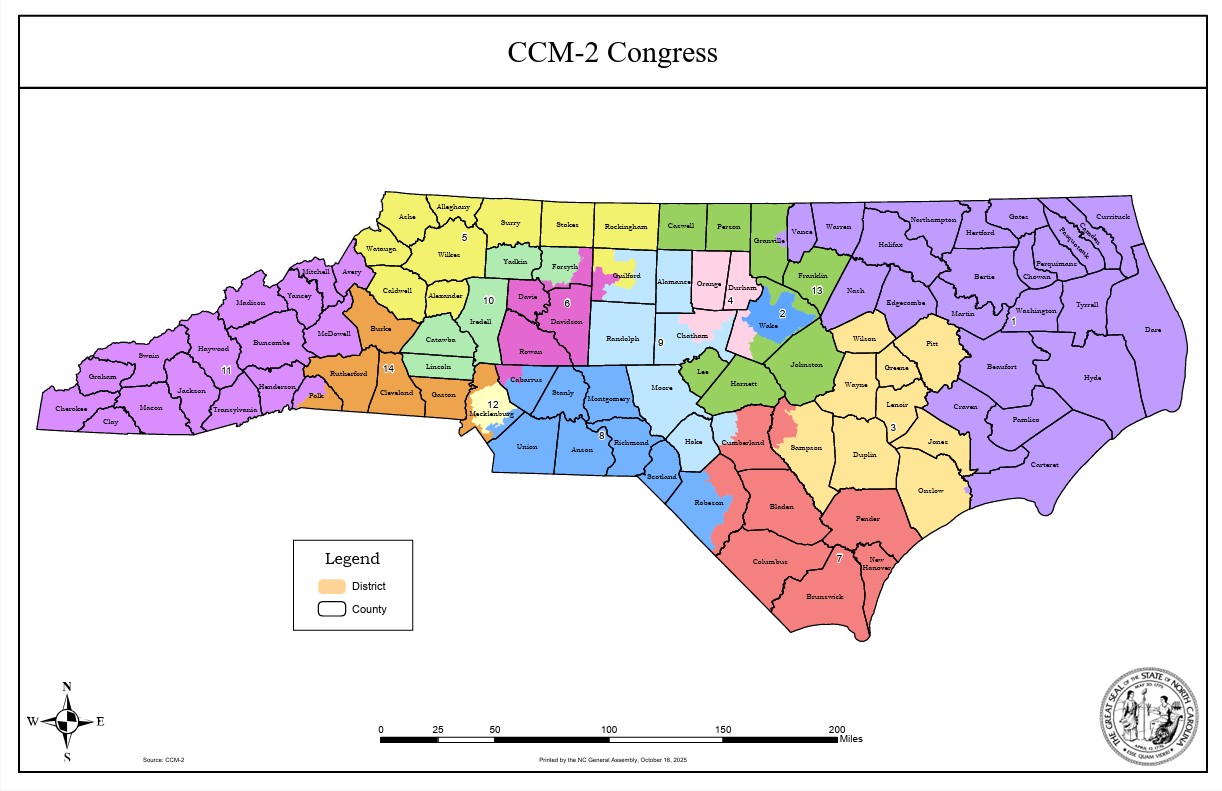
North Carolina GOP’s Proposed Map Seeks to Thwart Democratic Incumbent’s ReelectionNorth Carolina's Republican legislators are offering a redrawn U.S. House district map to help the GOP retain control of Congress.
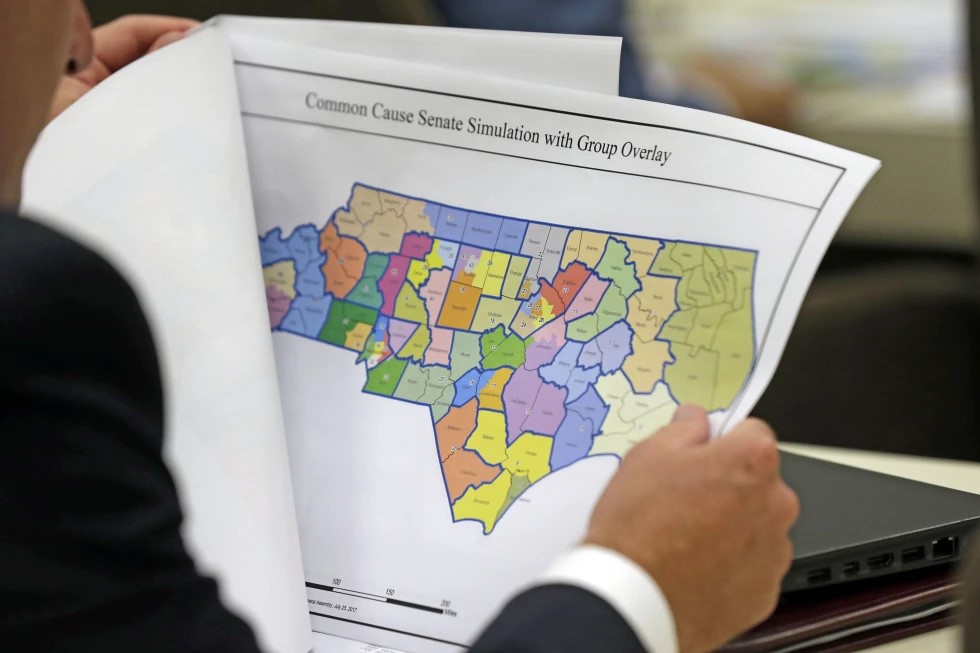
North Carolina Redistricting Trial Begins, With Racial Gerrymandering Allegations the FocusNorth Carolina districts drawn by Republicans that helped retain majorities in Raleigh and Washington are a topic in federal court this week.

NC House Minority Leader Shares Thoughts on Latest Round of Redistricting and MapsRep. Robert Reives II discussed North Carolina's latest redistricting efforts and his concerns over the state's lack of checks and balances.
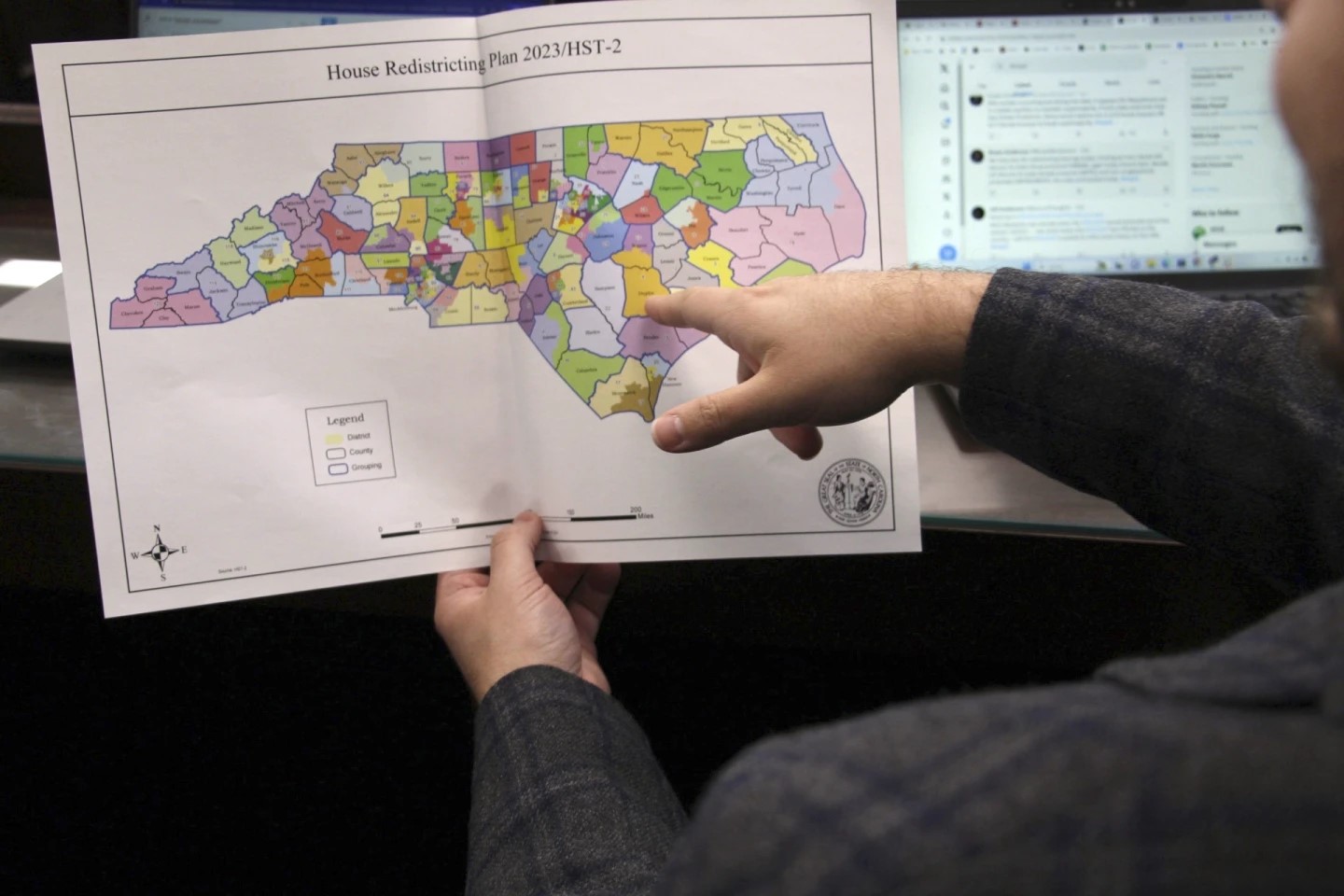
North Carolina Republicans Put Exclamation Mark on Pivotal Annual Session With Redistricting MapsThe North Carolina General Assembly gave final approval Wednesday to new redistricting maps poised to empower the state GOP for years.
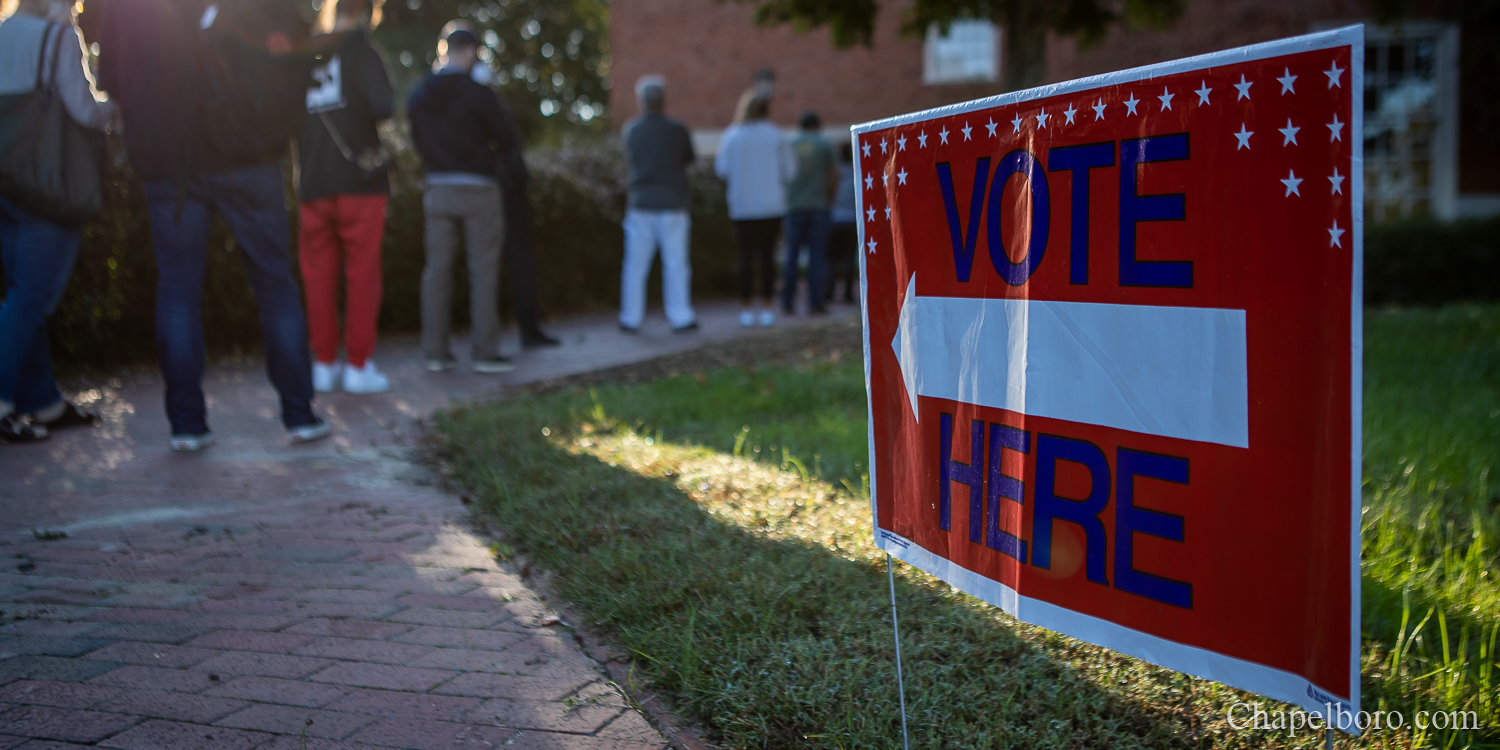
Court Opens Door To Voiding N. Carolina Voter ID AmendmentWritten by JONATHAN DREW and GARY D. ROBERTSON North Carolina’s highest court opened the door Friday to nullifying a voter ID mandate approved by citizens in 2018 because the lawmakers who put it on the ballot were elected from districts tainted by illegal racial bias. However, the North Carolina Supreme Court stopped short of striking […]
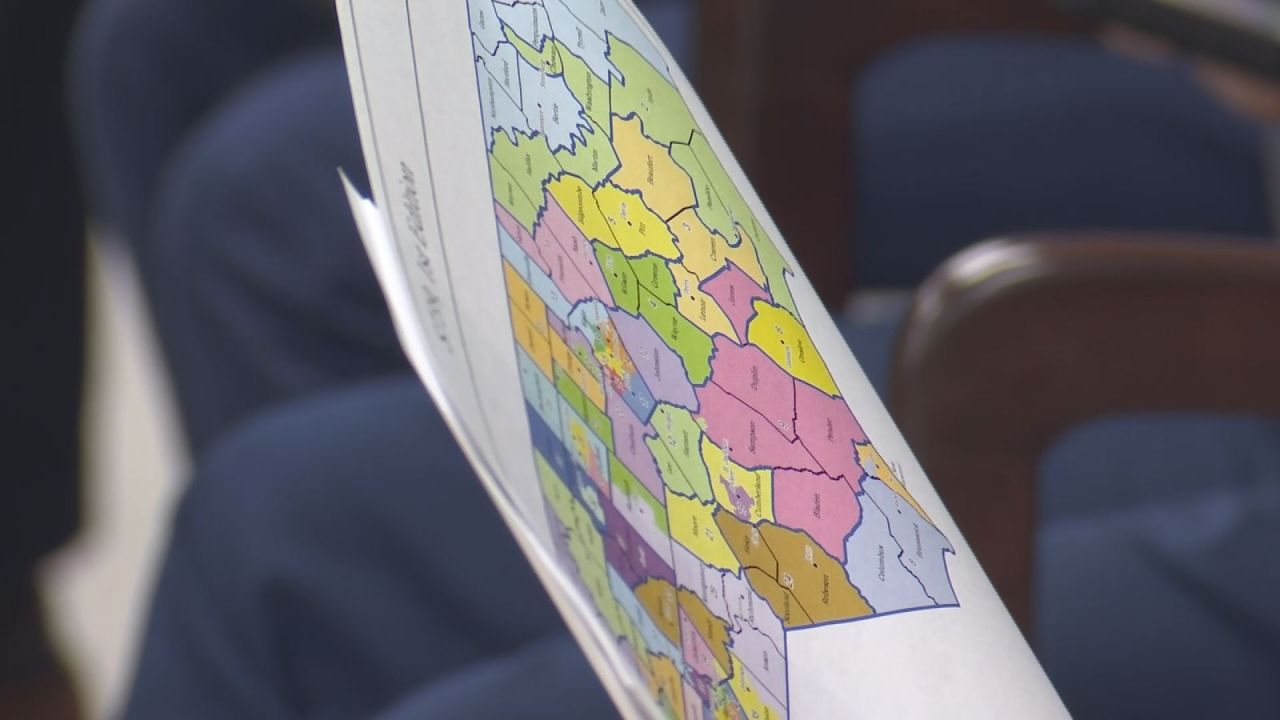
NC Supreme Court OKs Speeding Up Redistricting ArgumentsWritten by GARY D. ROBERTSON In another remapping decision along partisan leanings, the North Carolina Supreme Court has agreed to speed up arguments on further challenges to the boundaries for the state’s legislative seats and congressional districts. By a 4-3 ruling with registered Democrats in the majority, the justices granted a request by Common Cause to accelerate the redistricting […]
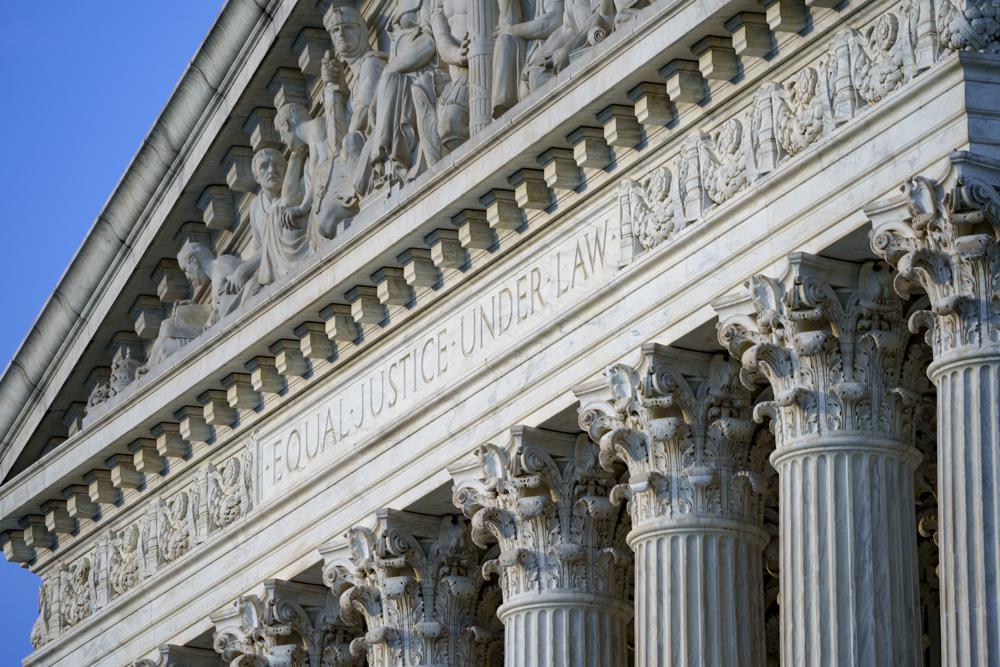
Justices To Hear NC GOP Appeal That Could Limit State CourtsWritten by THE ASSOCIATED PRESS The Supreme Court on Thursday agreed to hear an appeal from North Carolina Republicans that could drastically limit state court authority over congressional redistricting, as well as elections for Congress and the presidency. The justices will consider whether state courts, finding violations of their state constitutions, can order changes to […]

New NC District Maps Due Feb. 18; Expert Shares Reactions to RulingThe North Carolina Supreme Court recently struck down maps drawn by Republican lawmakers. The court said it was an act of partisan gerrymandering which violates the state constitution. Now, the North Carolina General Assembly has until February 18 to submit a new set of maps.
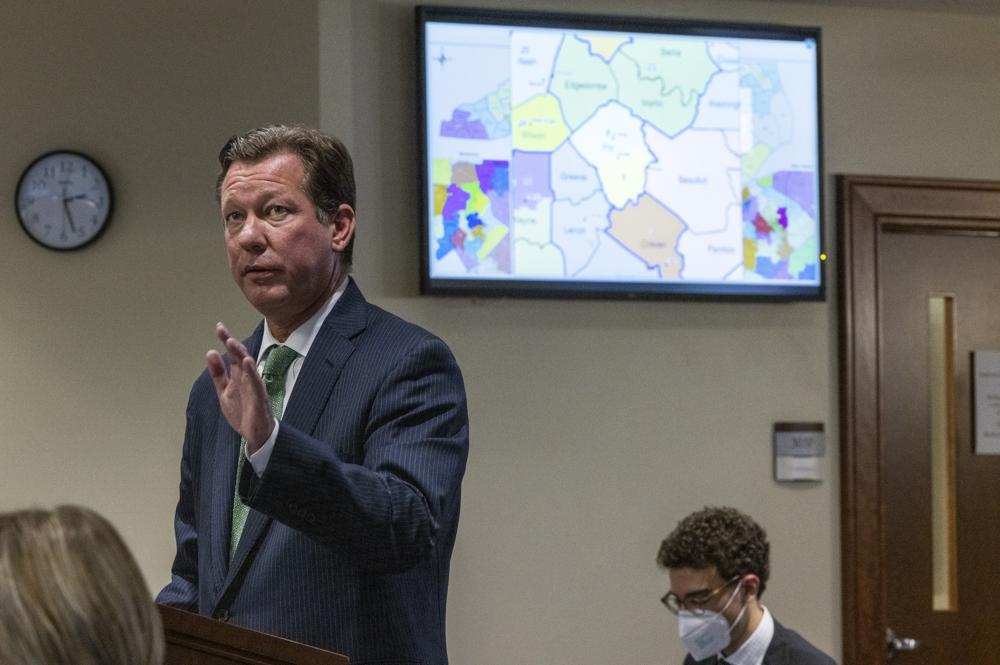
NC Redistricting Trial Concludes; Ruling Coming Within DaysWritten by GARY D. ROBERTSON A rapid trial over North Carolina’s new congressional and legislative districts concluded Thursday with closing arguments over whether the boundaries contain unlawful gerrymanders that should be replaced for upcoming elections. The three trial judges have until Tuesday to rule, the result of a directive by the state Supreme Court, which last […]
›










